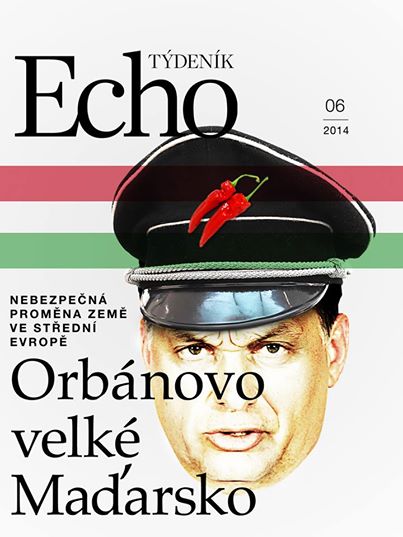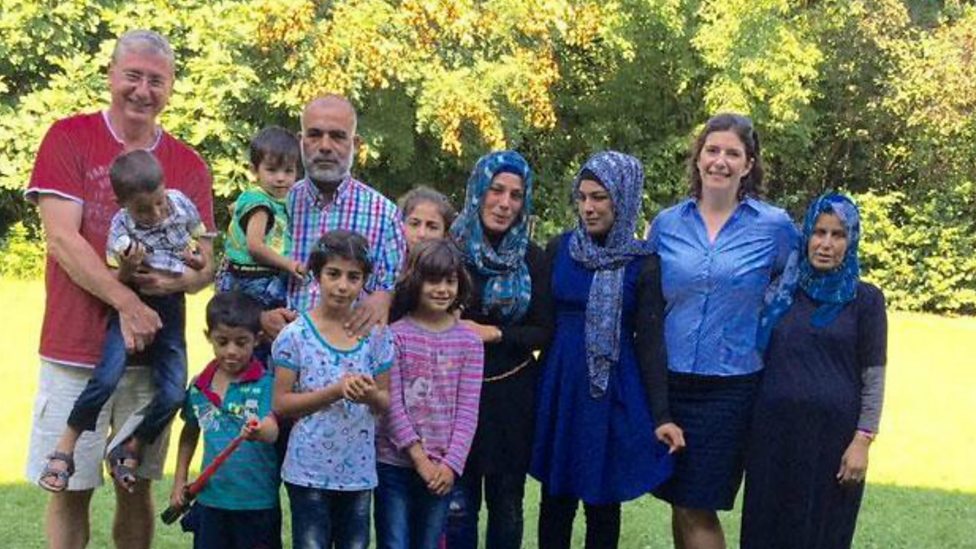The excuses of Ambassador Odor are rank and all-too-familiar attempts to put a deceptive sanctimonious spin on the calculating and anti-social malfeasances of the Hungarian government.
Blaming the EU and the media for bearing witness to the Hungarian government’s heartless and reckless mistreatment of the refugees — instead of owning up to it and remedying it — is a signature tactic of Viktor Orban’s scruple-free regime.
Overwhelmed by an unexpected crisis not of their making?
The months of advance preparation in the form of a concerted nation-wide hate-campaign against migrants and the fortune spent on hastily building a makeshift razor fence whose only bloody victims are migrant wildlife — was that all done sleep-walking?
So that now, being “caught unawares” by a humanitarian catastrophe — with no government provisions whatsoever for feeding, sheltering, reassuring and registering growing numbers of exhausted men, women and children, not even a public address system that can tell the bewildered and frightened victims in their own language what is happening and what lies in store for them — what the Hungarian did (and didn’t do) was the only possible option under the circumstances?
The victims — repeatedly called “economic migrants” and not refugees in the Hungarian government’s lengthy advance propaganda campaign against them, well before they even arrived — are right now detained for days outdoors by police cordons in the rapidly dropping temperatures, with the only food, water, tents, medical aid and information being provided for them by individual Hungarian citizens and volunteer organizations, not the Hungarian government, which is busy building hate and fences, along with hastily dispatching its ambassadors with stretched, sanctimonious and legalistic excuses to the rest of the world.
Unable to stop the worldwide media from bearing witness, the only thing the Hungarian government wants to do now is to get the victims herded into refugee camps, out of the public view, where even Amnesty International has been refused admittance.
The Hungarian government reckoned well that (with the help of its own domestic media control) its hate campaign would further desensitize and brutalize much of the Hungarian populace. (The wonderful volunteer helpers are alas just a small and exceptional minority.)
But perhaps the leadership didn’t reckon with the effect this very graphic glimpse of the Hungarian government M.O. would have on the rest of the world, which, till now, had not been quite ready to believe that the alarm signals about what is going on in Hungary were not exaggerations.
For this entire refugee catastrophe was premeditatedly fomented by the Hungarian government — muscularly resisting the alien hordes, as the defender not only of the sovereign Hungarian nation, but the rest of Europe — fomented for three reasons that have nothing to do with either the crisis in the Middle East, or the vast numbers of resulting refugees invading “Christian Europe,” or the threat of terrorism (as they are being cynically spun):
The plight of the refugees was simply stoked in every way by the Hungarian government in order to divert domestic press attention from mounting government corruption scandals (so far just minor mysteries to the world press) that could threaten the government’s electoral base. Scare tactics plus a muscular guardian stance, stoutly resisting the alien hordes, in contrast, wins Hungarian votes.
But, just as an insurance policy, in reality the primary reason for fomenting the refugee crisis was so as to provide a pretext for introducing new police-state laws that will be adopted September 15, but will last long past the refugee crisis — laws that plan to (1) criminalize asylum-seekers, (2) call up the army and the police forces to “defend” Hungary against them, with deadly force if deemed necessary, (3) allow warrantless entry into Hungarian homes on suspicion of harbouring refugees and (4) prescribe lengthy prison sentences for those found guilty.
(Under the new laws, for example, the current PM’s arch-rival, the former PM, could immediately be imprisoned as he has been sheltering an average of a dozen refugees every night since the crisis began, as well as feeding them and providing medical care. The current PM has long been seeking — so far in vain, because the Hungarian judicial system is not yet 100% under his control — a pretext for imprisoning the former PM, dictatorship quashing democracy.)
Viktor Orban likes to cite the letter of the law to justify his every misdeed. So he re-writes Hungarian law as needed and cherry-picks EU and member state laws to fit the occasion, creating a Frankenstein patchwork out of the worst from everywhere, to which he can claim to be faithfully adhering to the letter, while stifling the spirit of all that’s intended to be good, honest and decent. His refugee atrocities are a paradigmatic example of this unscrupulous legalistic strategy.
Princeton University’s renowned constitutional-law expert, Professor Kim Lane Scheppele — who has been studying and warning about the Hungarian government’s abuse of its 2/3 majority to adopt an undemocratic constitution undermining human rights as well as checks and balances on government powers — has written an extremely sobering analysis of what the latest piece of legislation portends.
In a police state, there would no longer be any need to fear being voted out of power…
“IF YOU COME TO HUNGARY, YOU CANNOT TAKE AWAY HUNGARIANS’ JOBS”
National Consultation on Immigration and Terrorism
Hungarian Government Posters, June 2015




 Wesley L Smith’s article,
Wesley L Smith’s article, 
 Saw a TV program about Dancing Bears
Saw a TV program about Dancing Bears


 Although it sounds like an impassioned plea for mice, Australian ecologist Mike Archer’s 2011
Although it sounds like an impassioned plea for mice, Australian ecologist Mike Archer’s 2011